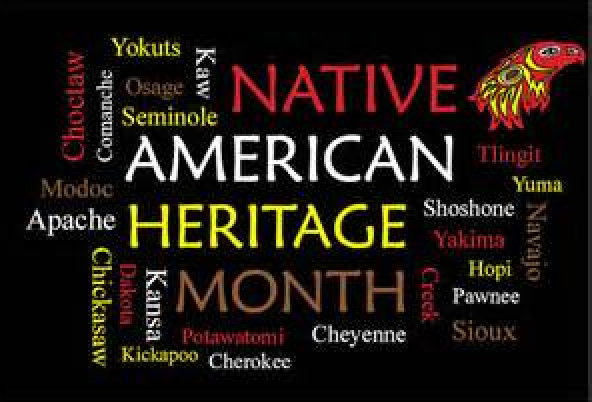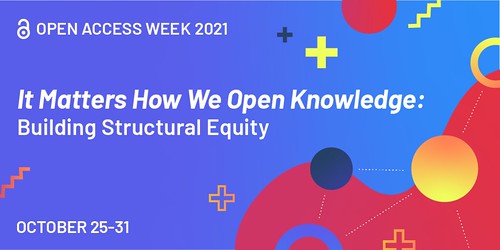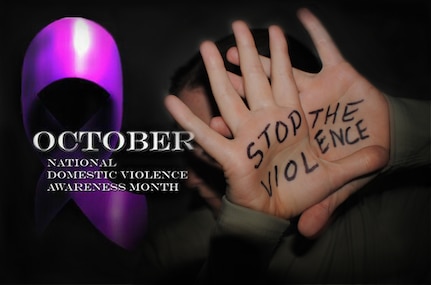This week in the Law Library we’re teaching statutory research and technology in law practice. We’re also studying for final exams and continuing to celebrate American Indian and Alaska Native Heritage Month.
This Week’s Research Sessions
Tuesday, November 16, 2021
Technology in Law Practice
Shannon Kemen, Legal Technology & Research Instructional Services Librarian
11:10am – 12:05pm
Room 208
Lawyering I, sec. 4
Ron Jones, Electronic Resources Instructional Services Librarian
Room 100A
2:00pm – 3:25pm
Researching Statutes
Lawyering I, sec. 6
Michael Whiteman, Associate Dean of Library Services
Room 100A
4:00pm – 5:25pm
Researching Statutes
Thursday, November 18, 2021
Technology in Law Practice
Shannon Kemen, Legal Technology & Research Instructional Services Librarian
11:10am – 12:05pm
Room 208
COVID-19 Campus Safety Measures
Don’t forget to submit your proof of vaccination by November 15! You can submit proof of vaccination via the UC COVID Check app (available for free in your app store) or email your proof to UCCOVIDCheck@ucmail.uc.edu.
Featured Study Aids
Federal Indian Law (Hornbook)
Available via the West Academic study aid subscription, Fletcher’s Hornbook on Federal Indian Law is a deep survey of the history and substantive law governing the relations between the three American sovereigns, federal, state, and tribal. Interwoven are issues of federalism, administrative law, constitutional rights, and international relations. This hornbook includes original research and novel analysis of foundational Supreme Court decisions and critical federal statutory schemes – the stories beyond the stories. In addition to delving into the origins and histories of cases and statutes, the hornbook analyzes modern Indian rights settlements, the international and comparative frontiers of Indian law, and the future of the field.
Principles of Federal Indian Law (Concise Hornbook)
Available via the West Academic study aid subscription, Fletcher’s Principles of Federal Indian Law covers the basics of federal Indian law, the relationships between tribal, state, and federal sovereigns, also touching on federalism, agency law, civil rights, and criminal jurisdiction aspects of Indian law. This concise hornbook offers comprehensive coverage of the blackletter law, with statutory, regulatory, and historical context. The origins behind important doctrines of Indian law and critical statutes are explored in detail.
Mastering American Indian Law
Available via the Lexis OverDrive study aid subscription, Mastering American Indian Law provides readers with an overview of the field. By framing the important eras of U.S. Indian policy in the Introductory Chapter, the text flows through historical up to contemporary developments in American Indian Law. In ten Chapters, the book has full discussions of a wide range of topics, such as: Chapter 2 – American Indian Property Law; Chapter 3 – Criminal Jurisdiction in Indian Country; Chapter 4 – Tribal Government, Civil Jurisdiction and Regulation; Chapter 8 – Tribal-State Relations; and Chapter 9 – Sacred Sites and Cultural Property Protection. Throughout the text, explanations of the relevant interaction between tribal governments, the federal government and state governments are included in the various subject areas. In Chapter 10 – International Indigenous Issues and Tribal Nations, the significant evolution of collective rights in international documents is focused upon as these documents may be relevant for tribal governments in relations with the United States.
Featured Guide
Native American Law Research Guide
The focus of this guide is to provide a broad overview of resources available to researchers of Federal Indian, tribal, and indigenous peoples law issues. Tribal law is notably distinct from federal Indian law. Federal Indian law concerns the relationship between federal, state, and tribal governments, while tribal law is the law tribes develop and apply to their members and territories.
Featured Video
Celebrating Our Journey: Tribal Law & Policy Institute 25th Anniversary Speaker Series
Lawyer and Playwright Mary Kathryn Nagle and a special panel joins us on this webinar to discuss her important play, Sliver of a Full Moon, which documents this victory (including the stories of the women who made this journey possible) along with ongoing implementation and expansion efforts. Sliver of a Full Moon documents the legal and jurisdictional issues raised in the wake of Oliphant v. Suquamish Indian Tribe, a 1978 Supreme Court decision that stripped Indian nations of the ability to exercise their inherent criminal jurisdiction over non-Indians who come onto tribal lands and commit crimes. Oliphant left Native women and children at a higher risk of domestic violence than any other group in the United States. The play then follows the bipartisan legislative battle to reauthorize VAWA in 2013 with a tribal jurisdiction provision that restored a portion of tribes’ jurisdiction to protect Native women and children from non- Indian perpetrated violence. Sliver of a Full Moon is about the power of sharing stories. In the words of survivor Lisa Brunner, “The partial restoration of tribal jurisdiction in VAWA 2013 is just a sliver of the full moon we need to ensure all of our women are safe. Until all of our tribes’ jurisdiction is fully restored, no one is safe.”
Featured Website
Tribal Law Gateway
The National Indian Law Library (NILL) is a law library devoted to American Indian law. It serves both the Native American Rights Fund (NARF) and the public. NILL serves the public by developing and making accessible a unique and valuable collection of Indian law resources and by providing direct research assistance and delivery of information. One of their primary services to the public is to provide access to tribal law via the Tribal Law Gateway.
Featured Treatise
Available on Lexis, Cohen’s Federal Indian Law is an encyclopedic treatise on federal Indian law and provides general overviews to relevant information, as well as in-depth study of specific areas within this complex area of federal law. This is an updated and revised edition of what has been referred to as the “bible” of federal Indian law. This publication focuses on the relationship among tribes, the states, and the federal government within the context of civil and criminal jurisdiction, as well as areas of resource management and government structure. Federal Indian Law also includes coverage of: Current topics such as Indian gaming and taxation; History and structure of tribal governments and tribal law; Tribal and individual Indian property rights, including intellectual property rights; Water rights; Hunting, fishing, and gathering rights; Economic development issues; and Government programs. This publication provides the tools to understand the law and to find relevant cases, statutes, regulations, and opinions critical to answering legal questions about federal Indian law.
Final Exams Are Coming And We Can Help!
The Law Library has many resources to help you prepare for final exams. Be sure and see our Exam Study Guide for more information!
Past Blog Postings on General Final Exam Preparation:
Study Tips & Law Library Resources for Outlining
Study Aids to Help You with Different Exam Formats & Study Aids for Exam Review
Selected CALI Lessons with Study Tips
Help! I am Zoning Out!
This lesson is designed to provide students with data about why their attention levels may dip during class or studying, including recent research regarding the effects of digital distractions on concentration. The lesson invites students to reflect upon the reasons they may lose focus and/or concentration while in class or while studying, and provides a robust set of strategies students can use to anticipate and control for that loss of focus, incorporating several free-writes.
Study Groups: Best Practices
This lesson gives best practices on whether and how to form a law school study group.
Outlining Basics
This lesson teaches you why, when and how to create outlines when preparing for your law school exams.
Creating Study Aids
Creating Study Aids is part of the Academic Support series of CALI Lessons. This lesson introduces you to law school study aids. It begins with a brief overview of self-regulated learning and Bloom’s learning taxonomy. Then, the lesson introduces law school study aids by pairing them with learning objectives at each level of the taxonomy. Finally, the lesson concludes with an activity designed to help you reflect on your learning. It can be used as an introduction, supplement, or as review.
Hyped About Hypos
Law students often hear about the importance of “doing hypos” but don’t know why they are important, where to find them, how to do them, and so on. This lesson will cover the what, why, when, where, and how of hypos so law students can conquer the material they are learning and be prepared for exams.
American Indian and Alaska Native Heritage Month
This month is American Indian and Alaska Native Heritage Month! In 1990, President George H.W. Bush signed a joint congressional resolution designating November 1990 as “National American Indian Heritage Month.” Similar proclamations have been issued every year since 1994. Celebrate with us as we explore the contributions and history of the Native people in the United States of America.
5 More Selected Resources to Learn More About American Indian and Alaska Native Heritage
ABA, Celebrating Native American Heritage Month (PDF)
A presentation featuring leaders in activism and the legal profession who are of Native American Heritage.
ABA Section of Civil Rights and Social Justice, Status, Realities, Legal Framework and Future of Indigenous Peoples in the US and Canada
Panelists discuss the current status and resiliency of indigenous peoples in the United States and Canada. The panelists address the critical question of how past discriminatory – and even brutal governmental policies – led us to the current status of indigenous peoples today. More importantly, the panelists discuss what steps, laws, and policies can be taken to improve the lives of indigenous peoples in the United States. and Canada. The panelists compare and contrast the history, status, and future of the First Nations People in Canada vs. American Indians and Alaska Natives in the United States. After the panel discussion, the audience will gain a high-level overview of the issues around indigenous populations, which we hope will lead to a desire to learn more.
Indigenous Digital Archive Treaties Explorer
While treaties between Indigenous peoples and the United States affect virtually every area in the USA, there is as yet no official list of all the treaties. The US National Archives holds 374 of the treaties, where they are known as the Ratified Indian Treaties. Here you can view them for the first time with key historic works that provide context to the agreements made and the histories of our shared lands.
Library of Congress, Indigenous Law Web Archive
The Law Library of Congress collects and preserves primary law sources of Indigenous nations, which are sovereign governments by treaty with the United States. At the time this collection started, there are 578 tribes and 92 agencies. This archive includes constitutions of a number of sovereign nations, including Navajo Nation, Muscogee Nation, Cherokee Nation, Comanche Nation, Hopi Tribe, etc. and ordinances, Supreme Court papers, court rules and forms for criminal, civil and family courts, and wellness courts. Tribal executive orders, emergency orders, ordinances and legislation are included in this collection as well. Tribes, nations, bands, communities and rancherias do communicate with their citizens by social media and at times when that was the sole source of legal documentation, we have targeted social media sites for capture where possible.
Tribal Law and Policy Institute, Celebrating our Journey (Nov. 2, 2021)
Celebrating our Journey focuses on the first part of the Tribal Law and Policy Institute’s 25th Anniversary theme of Celebrating our Journey; Honoring our Relatives; and Building a Vision for the Future. This webinar celebrates the journeys involved in the 2013 reauthorization of the Violence Against Women Act (VAWA) which was a significant victory for Native women and the tribal nations that seek to protect them; the implementation of VAWA 2013’s landmark Special Domestic Violence Criminal Jurisdiction (SDVCJ) provision (see NCAI’s 2018 Five-Year Report); and current VAWA reauthorization efforts to strengthen this initial limited restoration of tribal criminal jurisdiction over non-Indians. American Indian and Alaska Native women face rates of abuse, murder, and sexual assault higher than any other population in the United States. Statistics gathered by the U.S. Department of Justice and tribal governments demonstrate that non-Indians commit a majority of these violent crimes. Thus, the restoration of tribal criminal jurisdiction over non- Indians is a critical sovereign right that tribal governments can exercise to ensure safety for Native women.









